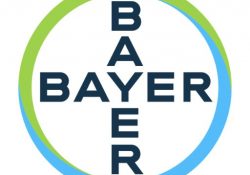India 2010 2010: India’s intervention to the WTO TRIPS Council: TRIPS plus enforcement trends, 2010-06-10 2011 2011: Karl De Gucht writes Andris Piebalgs on topic of European Union IPR demands on India and other developing countries, 2011-05-28 2011: WTO TRIPS… Continue Reading →
On January 21, 2014, Ketaki Gokhale of Bloomberg published a story in Businessweek on disputes over drug patents. The story closed with a rather sinister quote attributed to Bayer CEO Marijn Dekkers, “We did not develop this medicine for Indians. Continue Reading →
 |
| Bayer CEO Marijn Dekkers called the Nexavar compulsory license “essentially theft.” |
[UPDATE: The latest blog and transcript of Bayer CEO Marijn Dekkers’ full quote on the Indian compulsory license of Nexavar at the December Financial Times event is now available.]
Continue Reading →
On January 16, the India Intellectual Property Appeals Board (IPAB) began a hearing on the merits of Bayer’s appeal of India’s first compulsory license.
The outcome of this trial, which focuses on the cancer drug Nexavar, is a matter of first impression for the IPAB, and is expected to set precedents on a wide range of issues, including the permissible grounds for granting compulsory licenses, the relationship between the India patent law and the TRIPS Agreement, and the setting of terms and conditions for the compulsory license, including the royalty rates.
Continue Reading →
The India Controller General Controller General of Patents, Designs & Trade Marks has just (March 12, 2012) issued an order granting a compulsory license to patents on the cancer drug sorafenib/Nexavar, in the matter of NATCO Vs. BAYER. A copy of the decision is attached below.
Continue Reading →
KEI has provided an affidavit in an India compulsory licensing dispute involving Natco and Bayer, for patents on the cancer drug sorafenib (sold by Bayer under the brand name Nexavar).
 The Bayer price for sorafenib/Nexavar in India is $47 per 200 milligram tablet. At a daily dose of 4 tablets, this comes to $5,637 per month, or more than $68 thousand per year. In 2010, per capita income in India was $1,330.
The Bayer price for sorafenib/Nexavar in India is $47 per 200 milligram tablet. At a daily dose of 4 tablets, this comes to $5,637 per month, or more than $68 thousand per year. In 2010, per capita income in India was $1,330.
Continue Reading →


 The Bayer price for sorafenib/Nexavar in India is $47 per 200 milligram tablet. At a daily dose of 4 tablets, this comes to $5,637 per month, or more than $68 thousand per year. In 2010, per capita income in India was $1,330.
The Bayer price for sorafenib/Nexavar in India is $47 per 200 milligram tablet. At a daily dose of 4 tablets, this comes to $5,637 per month, or more than $68 thousand per year. In 2010, per capita income in India was $1,330.